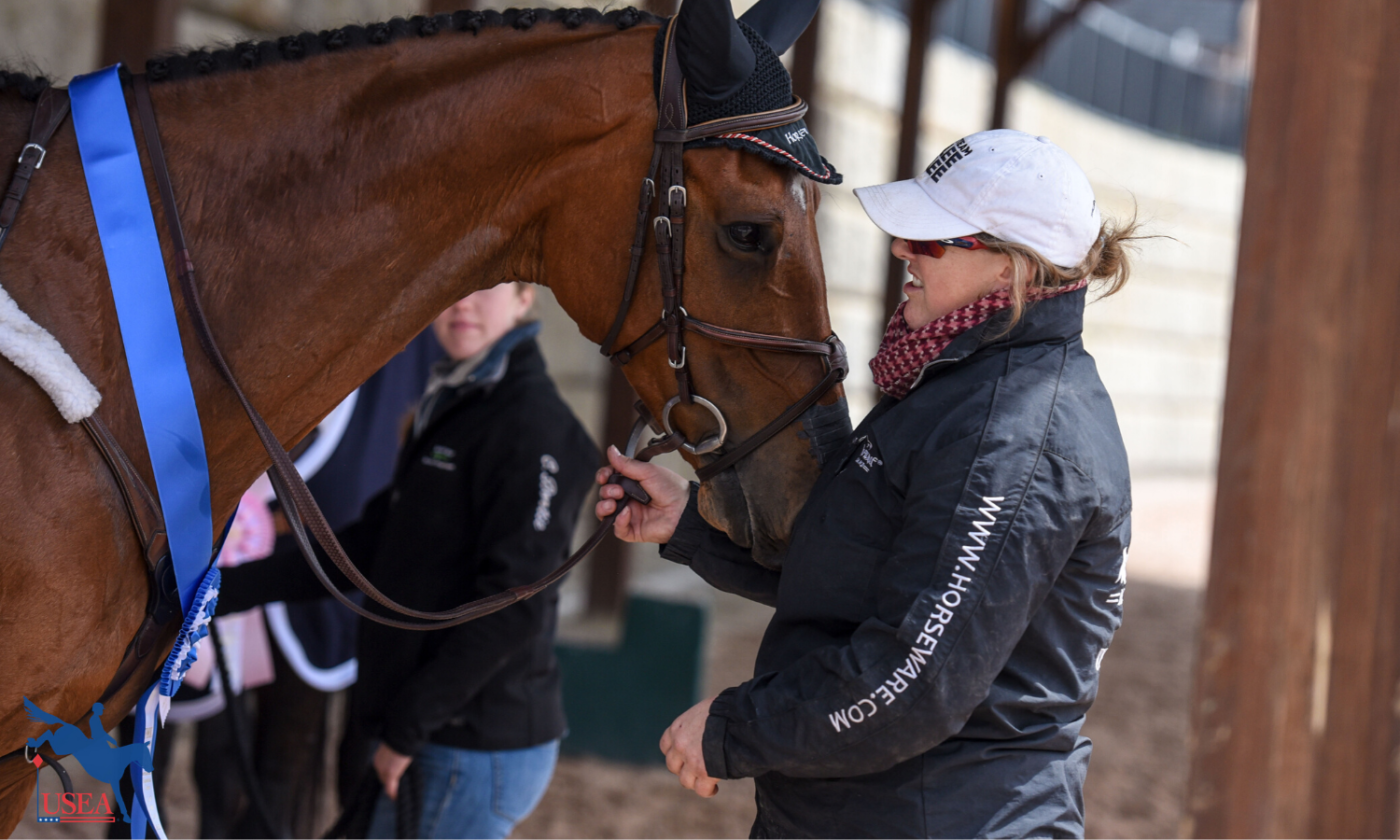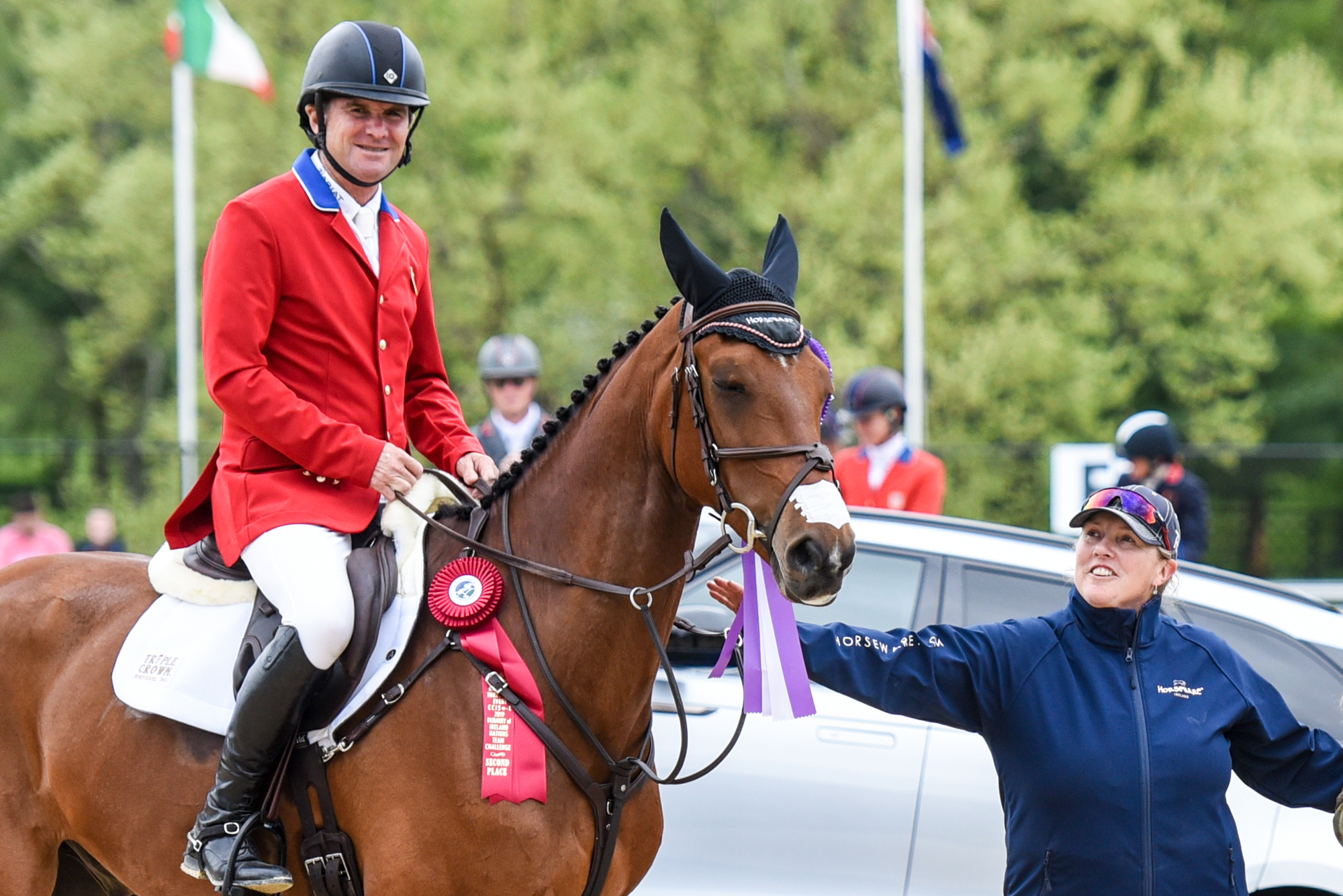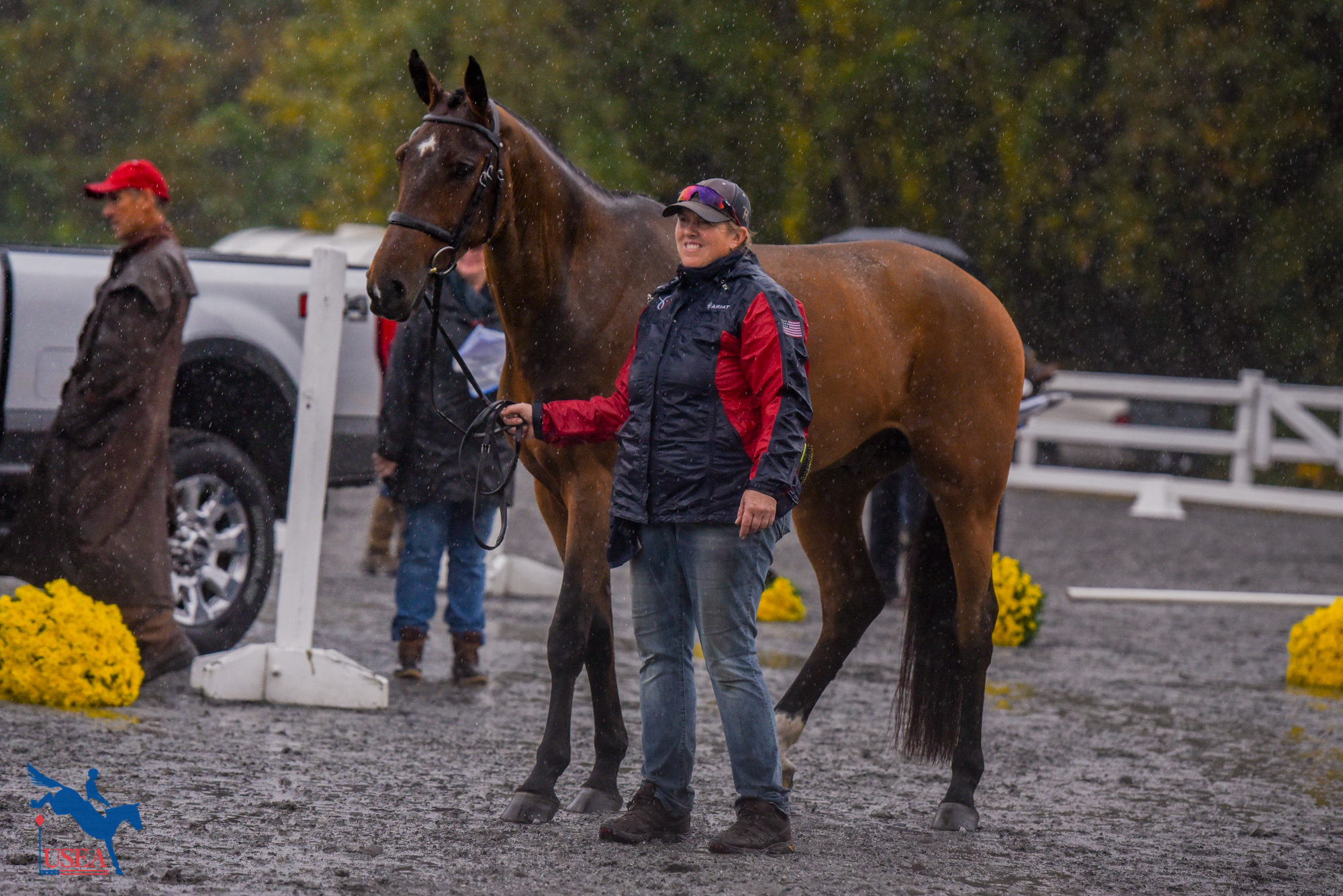

Emma Ford is one of the most experienced and best-known grooms on the eventing circuit. She’s just back from the Tokyo Olympics and planning a big life change. We catch up with her to find out what’s next, and what advice she has for anyone who wants to make a career out of grooming.
Q: You groomed for Philip Dutton, your long-term employer, in Tokyo. What was it like?
A: Extremely different from my three previous Olympics! Having no spectators made a huge difference; there just wasn’t that same atmosphere. Especially with the Japanese doing so well, it felt sad not to have crowds there cheering them on. But everyone made more of an effort to support their teams to create some atmosphere, and we are all very grateful that the Games went ahead and that we got to do it.
The venue was stunning, the horses couldn’t have wanted anything more, and the organizers really took care of us. The downside was that we weren’t allowed outside of the equestrian venue at all so we weren’t able to enjoy any of the Japanese culture, which is one of the things I love most about traveling with the horses to competitions abroad.

Q: Is there anything different about working at an Olympics from other major events?
A: They are largely the same, but the Olympics is the only time that we are stabled with the rest of the US teams - the jumpers and the dressage horses; we don’t usually cross paths with them at all, and that is great for making a real team spirit. You are always learning; I love interacting with the other grooms, asking for advice, seeing how they do things differently, but ultimately you are all doing the same job - making sure that the horse you are looking after is feeling its best.
Q: What does it take to groom at the highest level?
A: Dedication! You have to be someone who truly loves the horses and who understands that they always come first. You have to realize that your social life sometimes needs to be put aside; the horses’ needs are always first. If you need to take longer to do something because you have a sick horse, then you need to do that.
Attention to detail and wanting really to get to know the horse is so important. That’s especially true at the top levels - for example, to get to Tokyo we first had to fly to Germany and then to Japan. You need to know exactly what the behaviors of your horse are, so you can catch any little sign that something might not be ok as early as possible.
The biggest concern with flying horses is shipping fever, so you need to be very aware of how much they are drinking, and be on top of a small temperature change. It seems simple, but you need to catch things ahead of time. If you aren’t in tune with your horse, then things can be missed so easily.
Getting to know the horse starts at home, with how they are in their stalls every day. My favorite saying is, ‘The horses are always talking to you - you’ve just got to listen.’
Q: What is life like at Philip’s base in West Grove, PA?
A: We have 35 horses, with five or six of us looking after them. We have two or three riders who help Philip with the riding, or who ride the horses when he is away, and always two or three people on the ground - cooling horses down, tacking them up, switching turnout, putting horses on the walker, and so on. There are also two farm maintenance managers. We work six-day weeks and it’s non-stop. We’re very busy.
I came over to the US from the UK in 1998 and spent seven years in Massachusetts with another rider. I learned from her as she was climbing up the levels in the sport, so I learned alongside her. I started with her just at prelim and when I left she had a string of 12 horses and we had done Kentucky and flown over to Blenheim. I felt very fortunate to be gaining so much experience. I only came to Philip for one year, but have stayed for a lot longer!

Q: Do you find there is a difference between those who want to make a career out of grooming compared to those using it as a stopgap while they are younger?
A: I’ll be honest, here in the States we are struggling to find people who want to make grooming a long-term career. I’m retiring this year - I’m wanting to do something different and to create some time for myself.
There is a struggle to find people who want to do it long term. The problem with this is that they don’t develop that same bond with the horses, and I don’t feel that they have that same dedication to the horses.
When I first worked with Philip back in 2005 all my close friends were career grooms, but I’m not sure that is the same now. Lucy Katan does a great job back in England at promoting grooms and trying to improve their lifestyle [through the British Grooms Association] and that is the way forward, I think - encouraging grooms to think about it as a career rather than just a stopgap.
We don’t have a groom’s association here, but we are always trying to move towards that. Riders are pushing forward for an association and to put together a training program where the more experienced ‘older’ grooms can show the younger ones the ropes, and not only say what it is all about but also explain what comes with it. For example, the reason I became a groom was because I wanted to go to the top, but I knew I wouldn’t do it by riding. I don’t think people realize how much they can get out of it by grooming but not necessarily riding.
It is about promoting what a great career it is and trying to sort out things like a health care system so grooms are not stuck without health care insurance. We need to think about encouraging people beyond the phrase or stereotype of being ‘just a groom’ and inspiring people to develop their business beyond being a groom at a lesser level. There is a lot to be done, but it needs to be gone about in the right way.
Q: What advice do you have for people wanting to pursue a proper career in grooming?
A: Don’t be afraid to approach riders and find out what they are looking for. For example, go straight in as a working student if that is what you want to do.
Be prepared to work from the bottom up. You need as much experience as possible in order to be able to step into roles. When I was at school I would go and help out at as many yards as possible to learn as much as I could.
You need to show that you are a self-starter and are motivated; there is always something to do. I always say there is always a broom to pick up, always somewhere that needs sweeping! It’s about finding the balance of asking when you need to, but also being proactive and getting things done.
Always give it a try - that’s my advice.
Q: You said you are retiring, so what’s next in life?
A: I’m taking a four-month traveling tour and going to South Africa and Thailand to work with elephants! I love to travel, so ideally in the future I will work for a few months, travel, work for a few more months, and then travel again, and so on.
I totally will end up back with horses - they are my life, and the great thing about horses is that you can go anywhere in the world and still work with them. I’ve got a clinic business, off the back of the book I wrote with a partner back in 2015, with the aim of teaching adult amateurs and anyone who wants to listen about horse health management and show management, and I’m hoping to continue with this. I’m likely to do some freelance work, and probably will go and help a friend who is starting up a rehab facility. I’d also like to be a part of the focus of getting new grooms through the system.
The hardest part, though, will be saying goodbye to the horses. Anyone who knows me knows how attached to them I am.
Let the fun and games begin! This morning kicks off the official start of competition at the 2024 Defender Kentucky Three-Day Event (K3DE). The hefty four-star field is the first to set foot in the Rolex Stadium starting at 8:00 a.m. Last year we saw 49 four-star pairs in this division, but this year there are 63 pairs in the field.
Thirty-five five-star horses presented today under sunny skies at the Defender Kentucky Three-Day Event.
If all goes according to plan in the first part of the extended weekend, we will see 36 horses galloping across Derek di Grazia's CCI5*-L cross-country course at the 2024 Defender Kentucky Three-Day Event (DK3DE). We partnered up with the team at CrossCountry App to bring you a preview of both the five-star and CCI4*-s tracks this year.
Lights, cameras, action! The first formal horse inspection (which some might informally refer to as "the jog") at the 2024 Defender Kentucky Three-Day Event (K3DE) takes place this afternoon at the Kentucky Horse Park in Lexington, Kentucky. While this part of the event is a fan-favorite historically based on the impeccable turnout of the horses and the stylish and forward fashion choices of the riders (we are looking at you Boyd Martin in hopes that you bring back the American flag suit circa 2022), it serves a very important purpose: ensuring that each horse is fit, sound, and ready to compete at the five-star level.